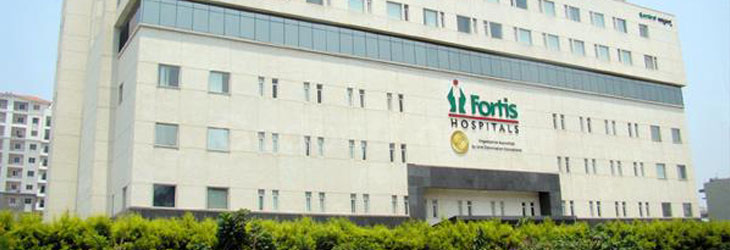
In a small town of Punjab which lies on the banks of the river Beas and is named after it, is situated the headquarters of the Radha Soami Satsang, a spiritual sect which claims of having 40 lakh followers around the world.
The sect is headed by Gurinder Singh Dhillon (64) and many of his followers call him an incarnation of God but, according to a Bloomberg report, he is behind one of the most dramatic collapses in the history of Indian business: The downfall of the financial and healthcare empire owned by brothers Malvinder Singh (45) and Shivinder Singh (43).
The brothers' main holding companies gave loans worth Rs 2,500 crore to the Dhillon family and property business controlled by them. A part of these was financed by borrowing from the brothers' listed companies and when combined with other investments by the brothers that went bad, causing their empire to be snared in a debt spiral.
Heirs to a business house which was worth billions not that long ago, there has been a dramatic fall in their fortunes in the last six months. Lenders have seized their shareholdings and financial authorities have launched a criminal probe to locate the Rs 2,300 crore gone missing from their listed companies.
They owe $500 million over fraud allegations related to the sale of Ranbaxy Laboratories. And they have lost the family mansion where they grew up. However, they deny doing anything wrong.
Dhillon is a cousin of the brothers' mother and became a father figure to them after their father passed away in 1999. From then onwards, finances of Dhillon and the brothers have become closely connected with the latter loaning money to the Dhillon family via shell companies and opaque financial documents.
After getting $2 billion from the sale of Ranbaxy, the brothers rapidly expanded their public firms − financial firm Religare Enterprises Ltd and hospital chain Fortis Healthcare Ltd – but in doing so they accumulated a huge debt and side by side they were also financing a real-estate empire owned largely by Dhillon's family.
They haven't been charged as yet with any crimes and they acknowledge having financial ties with Dhillon and admitted they are in talks with their spiritual guru's family to get back the money they are owed.
However, both said it is not true that Dhillon was behind their financial woes as he is their spiritual master and he has always acted out of love towards them and has their best interests at heart.
However, they train their guns at Sunil Godhwani, who on the recommendation of Dhillon, was appointed to lead Religare and was also headed their holding company RHC Holding Pvt.
The brothers say Godhwani took decisions without consulting them and made financial decisions, including lending loans to the Dhillon family and companies, which gave rise to financial troubles they are facing at the moment.
According to a Bloomberg report in early 2018, the brothers took Rs 500 crore from Fortis without the board's approval and an investor based in New York filed a lawsuit accusing them of syphoning off Rs 1,800 crore from Religare.
The brothers denied doing anything illegal and said Godhwani was in charge at Religare and RHC when the said transaction happened. In case of Fortis, they say it was normal for movement of funds at that time and only later it became related-party transactions.
The brothers came out of the shadow of their illustrious father when they sold Ranbaxy, then India's largest drugmaker, to Japanese pharmaceutical giant Daiichi Sankyo in 2008. As the sale was taking place, US Food and Drug Administration raised questions about Ranbaxy's manufacturing practices and the safety of its medicines.
Flush with cash, the brothers aggressively expanded Fortis and Religare, each topping $1billion in market value on the back of surging demand for health and financial services.
In 2013, Ranbaxy faced $500 million in fines after pleading guilty to charges of a criminal felony in the US.
In an arbitration tribunal in Singapore, Daiichi Sankyo accused the Singh Brothers of concealing the regulatory issues Ranbaxy was facing during the sale. A charge the brothers denied.
In 2016, the tribunal ruled against the brothers and awarded Daiichi Sankyo about $500 million in damages and interest. The brothers' are appealing the ruling.








